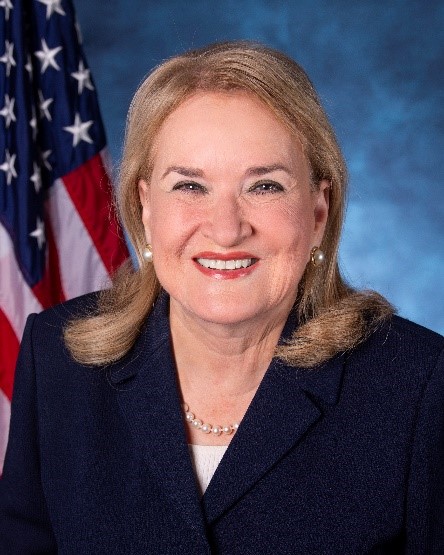Rep. Jesus Garcia

Stats
Sponsored Legislation

US Congress 116th Congress
Preventing Credit Score Discrimination in Auto Insurance Act [HB-1756]
[Insurance ]
[Consumer Protection ]
[Transportation and Motor Vehicles ]
[Data Privacy ]
Prohibits the use of a credit report, a credit score, or other consumer information in determining auto insurance coverage or rates.

US Congress 116th Congress
Save the Internet Act of 2019 [HB-1644]
[Telecommunications ]
[Technology and Innovation ]
[Consumer Protection ]
[Data Privacy ]
To restore the open internet order of the Federal Communications Commission.

US Congress 116th Congress
Earned Income Tax Credit Equity for Puerto Rico Act of 2019 [HB-754]
[Taxes ]
[Poverty ]
[Human Services ]
Makes residents of Puerto Rico eligible for the federal earned income tax credit.

US Congress 116th Congress
Child Tax Credit Equity for Puerto Rico Act of 2019 [HB-302]
[Taxes ]
[Children and Youth ]
[Family-Related Legislation ]
[Poverty ]
Modifies the rules for the refundable portion of the child tax credit to (1) allow residents of Puerto Rico to claim the refundable portion of the child tax credit on the same basis as U.S. taxpayers, and (2) allow residents of Puerto Rico with one or two children to claim the refundable portion of the credit on the same basis as residents with three or more children.

US Congress 116th Congress
Bank on Students Emergency Loan Refinancing Act [HB-1707]
[Student Loans ]
[Taxes ]
[Education ]
Revises requirements concerning student loan debt. Specifically, the bill establishes a program that allows eligible individuals with federal or private student loans to refinance them down to the lower rates offered to new federal borrowers in the 2016-2017 school year under certain circumstances. In addition, the bill requires an individual taxpayer whose adjusted gross income exceeds $1 million to pay a minimum tax rate of 30% of the excess of the taxpayer's adjusted gross income over the taxpayer's modified charitable contribution deduction
(continued...)

US Congress 116th Congress
To designate the facility of the United States Postal Service located at 66 Grove Court in Elgin, Illinois, as the "Corporal Alex Martinez Memorial Post Office Building". [HB-1844]
[Veterans ]
[Military ]
[Public Safety ]
Designates the facility of the United States Postal Service located at 66 Grove Court in Elgin, Illinois, as the "Corporal Alex Martinez Memorial Post Office Building."

US Congress 116th Congress
Educators Expense Deduction Modernization Act [HB-878]
[Taxes ]
[Education ]
[Inflation ]
Modifies the tax deduction for certain expenses of elementary and secondary school teachers to (1) increase from $250 to $500 the annual limit on the expenses that may be deducted, and (2) require the limit to be adjusted for inflation after 2019.

US Congress 116th Congress
Native American Voting Rights Act of 2019 [HB-1694]
[Voting Rights ]
[Native American Affairs ]
[Elections ]
[Grants ]
Modifies the voting rights of Native American and Alaska Native voters. Changes made by the bill include the following: expanding the types of facilities that can be used as voter registration agencies, increasing polling site accessibility, providing enforcement power to citizens and attorneys general, requiring approval for actions like moving a polling place, validating certain tribal identification for voting or registering, and expanding requirements for bilingual voting accessibility. The bill also establishes a Native American voting task
(continued...)

US Congress 116th Congress
Violence Against Women Reauthorization Act of 2019 [HB-1585]
[Crime ]
[Firearms/Gun Control ]
[Housing ]
[Human Services ]
[Public Safety ]
[Family-Related Legislation ]
Modifies and reauthorizes through FY2024 programs and activities under the Violence Against Women Act that seek to prevent and respond to domestic violence, sexual assault, dating violence, and stalking. Among other things, the bill also authorizes new programs, makes changes to federal firearms laws, and establishes new protections to promote housing stability and economic security for victims of domestic violence, sexual assault, dating violence, and stalking.

US Congress 116th Congress
Rehabilitation for Multiemployer Pensions Act of 2019 [HB-397]
[Pensions ]
[Labor, Jobs, Employment ]
[Budget and Spending ]
[Taxes ]
[Retirement ]
Establishes the Pension Rehabilitation Administration within the Department of the Treasury and a related trust fund to make loans to certain multiemployer defined benefit pension plans. To receive a loan, a plan must be (1) in critical and declining status, including any plan with respect to which a suspension of benefits has been approved; (2) in critical status, have a modified funded percentage of less than 40%, and have a ratio of active to inactive participants which is less than two to five; or (3) insolvent, if the plan became insolvent
(continued...)